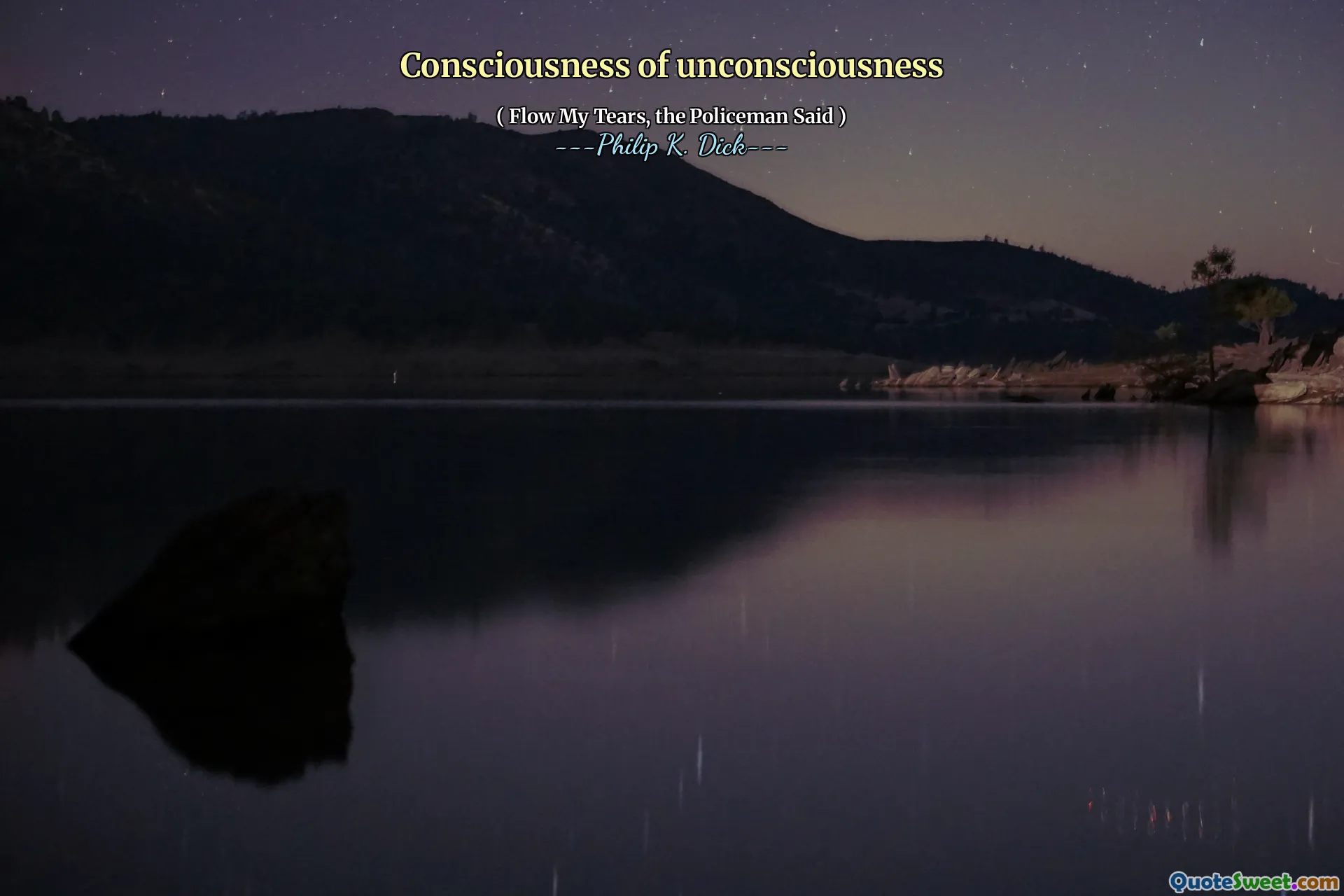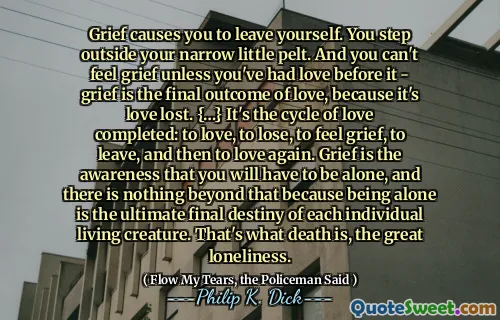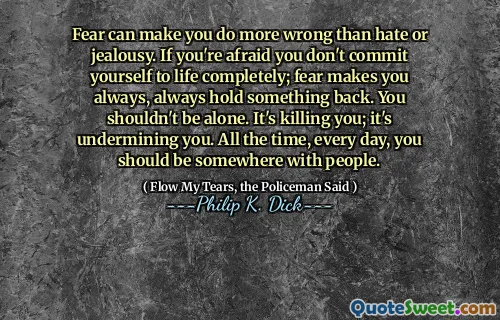
Consciousness of unconsciousness
In "Flow My Tears, the Policeman Said," Philip K. Dick explores the themes of identity and consciousness through a dystopian lens. The protagonist, Jason Taverner, suddenly finds himself without a past or identity in a society that places immense value on personal history. His struggle to regain his former self reflects a broader commentary on the fragility of human existence and the nature of reality. The concept of "consciousness of unconsciousness" arises as Taverner navigates a world where his very essence has been erased. It highlights a paradox where he is aware of his lost identity but cannot grasp its reality. This tension between awareness and existential void emphasizes the intricate relationship between self-perception and the outer world, offering profound reflections on the human condition.
In "Flow My Tears, the Policeman Said," Philip K. Dick explores the themes of identity and consciousness through a dystopian lens. The protagonist, Jason Taverner, suddenly finds himself without a past or identity in a society that places immense value on personal history. His struggle to regain his former self reflects a broader commentary on the fragility of human existence and the nature of reality.
The concept of "consciousness of unconsciousness" arises as Taverner navigates a world where his very essence has been erased. It highlights a paradox where he is aware of his lost identity but cannot grasp its reality. This tension between awareness and existential void emphasizes the intricate relationship between self-perception and the outer world, offering profound reflections on the human condition.






